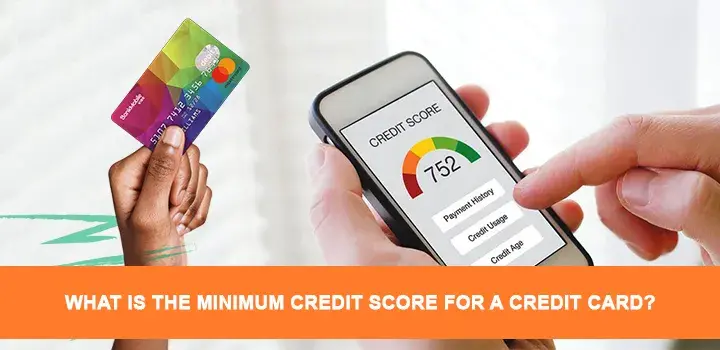-
Posted on: 21 Dec 2022

-
There's no minimum credit score for a credit card to get a card if any will do. Some companies don't check applicants' histories and the main approval requirement is that you earn more money than you spend--so it is certainly possible for people with low or no scores to get cards!
Getting approved for a credit card is not an easy thing to do. If you're looking at getting one of the better offers, it will be even harder!
The best way to get a credit card is by meeting the requirements of that specific company. If you want an excellent chance at being approved, your scores will need to be in the good or better range; however, it's important not to just apply wherever because some companies only look out for certain score tiers when deciding who gets their product!
Credit cards have certain requirements that you need to meet for your card application to be considered. The minimum score needed is higher than what's typically reported on an individual’s credit report, but Creditrepairease found the best way around this problem was by reaching out and getting pre-approved before applying!
Here is the list of minimum credit scores for credit cards at each level:
Credit requirement Traditional score range CRE recommended score range Recommended credit card Bad Credit 300-619 300-639 Bank of America® Unlimited Cash Rewards Secured Credit Card Limited credit Less than 3 years of history Less than 3 years of history Capital One Platinum Credit Card Fair credit 620-659 640-699 Capital One QuicksilverOne Cash Rewards Credit Card Good credit 660-719 700-749 Chase Freedom Unlimited® Excellent credit 720-850 750-850 Chase Sapphire Reserve® Credit card approval odds are determined by many factors including your income, past payment history, and even how long you’ve been looking for a lending institution. One way to estimate what they may be in the future is checking if there has ever been any pre-approval offered on either an individual or business level through various providers like Credit Repair Ease who provide personalized recommendations based on these data points!
What impacts your credit score?
The FICO and VantageScores are two of the most popular credit scoring systems in use today. They're used by many lenders, including banks/branches to decide whether or not you’ll get approved for an auto loan; they also factor into deciding what interest rate applies when someone wants a mortgage (or any other loan). Understanding how these scores work will help make sure your next purchase goes smoothly!
Let’s look at FICO first:
Payment history:
Your payment history is a major factor in determining your credit score, accounting for 35% of the total. This includes any late payments and how you eventually resolved them after being overdue or past due on occasion (30 days+, 60+/-). Paying quickly every time will help put blood stains onto these best efforts as well!
Credit utilization
Credit utilization is a measure of how much you’re using your total credit limit. If, for example, I have one card with $1,000 and another that has no limits at all but still shows up on this report because it’s part-time (for instance), then my overall risk will go up by 30%.
Credit history
Credit history is an important factor in determining your FICO score. It looks at how long you've been using credit and what kind of accounts are on file- so it's crucial to keep track! Your current account balance doesn't matter as much here because these factors only go back two years from when they were opened; but if there have been several recent additions with similar rotating limits, then those will count too (although not necessarily for 15% purposes).
Credit mix
Credit mix is a determining factor in your credit score. Two types of accounts can give you an advantage when it comes time to evaluate how much debtors might owe—revolving and installment loans, respectively.. revolving loans include things like credit cards or lines while installment ones may be car purchase agreements as well as mortgage checks written against homes owned by others.
New credit
New credit is the final 10% of your FICO score. You might have read that before and thought, “I need to increase myixtalibitcoin” While this may be true-be very careful about how many inquiries you make! Anytime an application for new or line increases comes up on the report it'll stay there until two years later - so only apply when necessary not just because u want more loans.
How to estimate your credit score?
Various factors contribute to a good credit score. It is important to make sure that the information you provide in your credit application is correct and accurate.
There are different ways to estimate your credit score, but the easiest way is by using a FICO calculator. They will give you an estimate of what your score will be after taking into account your payment history, debt-to-credit ratio, and length of credit history.
The bottom line
You can check if your credit score is good enough for the card of your choice. If not, then other cards will still help you build up an acceptable level of ratings and benefits that are more toward what's best suited for someone who has just started in debt management or financial responsibility- which means we're all working together!
Call (888) 803-7889 & Learn about the minimum credit score for credit cards!




